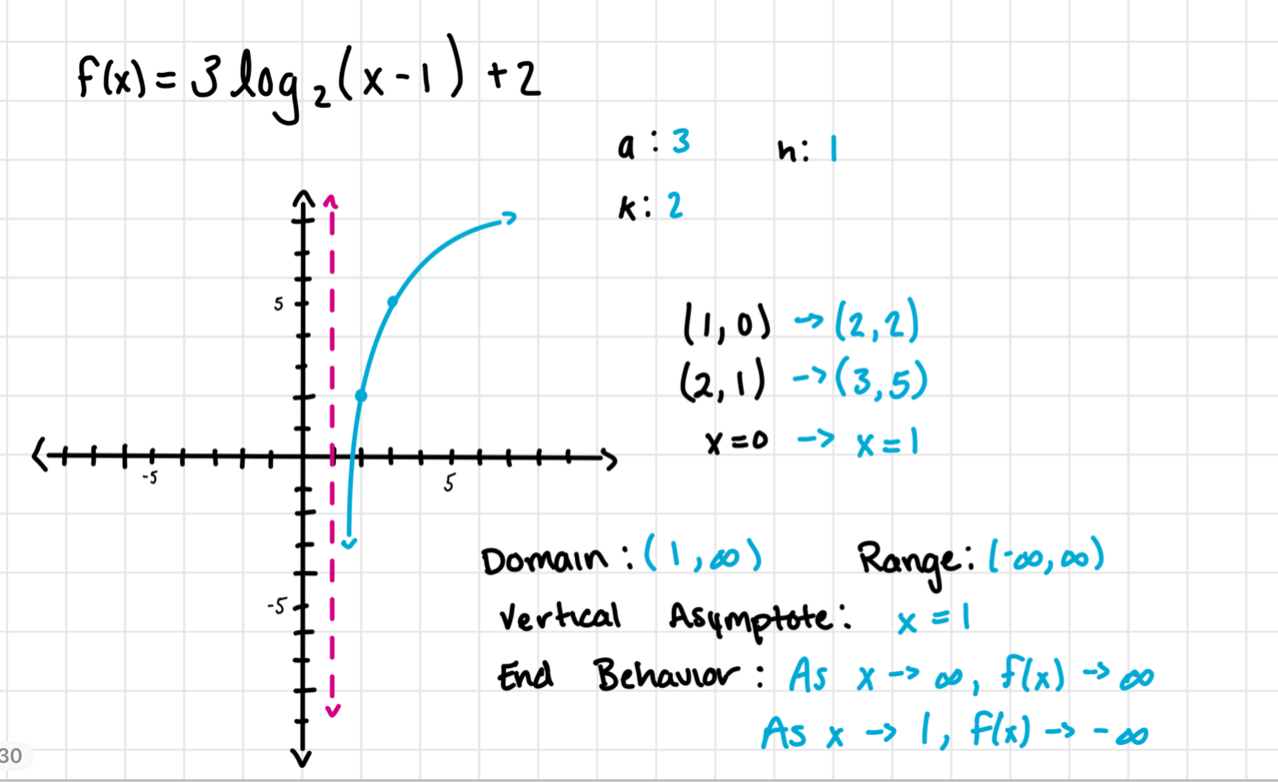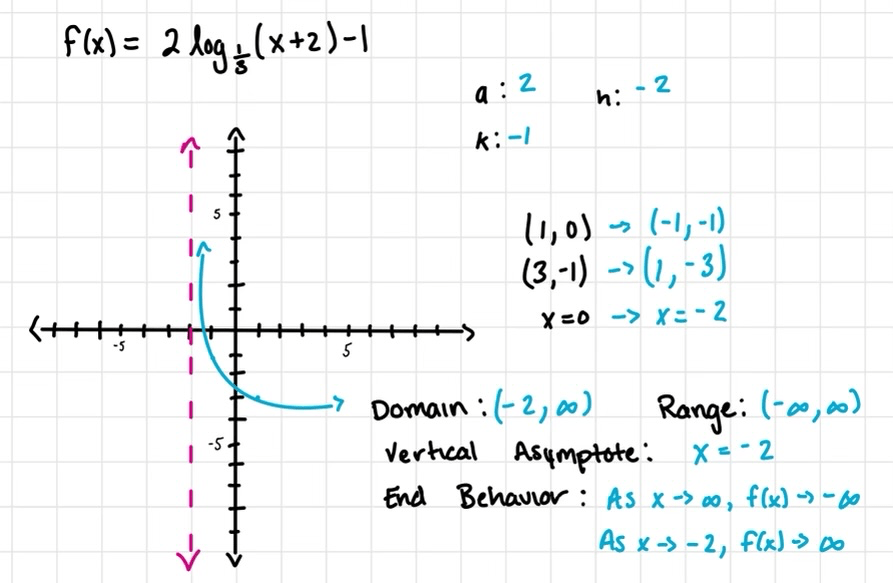Find the inverse:
f(x)= log_2(x-6)
y=2^x+6
Write as a logarithm:
3^(x+1)=81
x=log_3(81)-1
Expand:
ln(2/x)
=ln(2)-ln(x)
log_2(2x-1)=log_2(3x+4)
x=-5
The rabbit population is decreasing at a rate of 4.5% per year. If the current population is 10,000 when will the rabbit population be 4,000?
It will take about 20 years for the population to reach 4,000 rabbits.
Find the inverse:
f(x)= e^(x+1)
f^-1(x)=ln(x)-1
Write as a logarithm:
e^(3x)=12
x= ln(12)/3
Condense:
2ln(x)-ln(y)
=ln(x^2/y)
log_3(x+3)=2
x=6
You invest $3,000 in an account with an interest rate of 1.5%. How many years till you triple your money?
It will take 74 years until I triple my money.
Find the inverse:
f(x)= log(x-3)
y=10^x+3
ln(x+2)=3
x=e^3-2
log_2(x^5y)
Expanding:
5log_2(x) + log_2(y)
log_4(x-4)=2
x=20
$600 is invested in an account that compounds continuously. What rate do you need to have $1,200 in your account in 5 years.
I would need a rate of 13.9% to have $1,200 in my account in 5 years.
Graph the following equation:
f(x)=3log_2(x-1)+2

Use your calculator to approximate:
log_4(21)
round to 3 decimal places
=log21/log4
=2.196
3log(x)+log(y)
Condense:
log(x^3y)
Round answer to 3 decimal places
2^x-2=18
x=4.322
$500 is invested in an account that compounds continuously. What rate do you need to double your money in 10 years?
I need a rate of 6.9% to double my money in 10 years.
Graph the following equation:
f(x)=2log_(1/3)(x+2)-1

Use your calculator to approximate
log_3(15)
round to the 3rd decimal place
=log15/log3
=2.465
2log_3(x)+log_3(y)-log_3(z)
Condense:
log_3((x^2y)/z)
3^(x+1)-2=0
x=-0.369
Gaby started a youtube channel with 100 subscribers. Every month the number of subscribers increases by 5%. After how many months will Gaby have 1,550 subscribers?
Gaby will have 1,550 subscribers after 672 months.